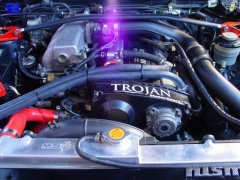Duncan's Race Car - The Most Overdue Build Thread On Sau
Announcements
-
Similar Content
-
Latest Posts
-
I am aware of their presence, but the product page looked like that conversion will eliminate the AWD capability. Fact remains it's kind of a hassle to send my oil sump halfway around the world and buying an extra one is expensive and unnecessary. Before I go hat route I'd explore more local options. Would you recommend I just pull the engine and renew as many things as possible since I'm already having problems with some leaks? Would have to get an engine crane first though.
-
Are there any indicators that the vehicle is in limp mode? Any dash light, or something. Or is it just lack of acceleration?
-
Recaro sr3 I've always found comfy, compared to my stock r33 gtst and bride fixed back. Can get them cheapish from a Honda owner.
-
Does your rb gearbox have the common input shaft bearing sound? (One one where it goes away when u push the clutch in or get to higher revs) I heard if you put the wrong oil it can get this sound.
-
There's more than one way to skin that cat, and most of the sump Maatouks have done will be GTR sumps. They are HUGE in GTR drag racing here.
-









Recommended Posts
Create an account or sign in to comment
You need to be a member in order to leave a comment
Create an account
Sign up for a new account in our community. It's easy!
Register a new accountSign in
Already have an account? Sign in here.
Sign In Now